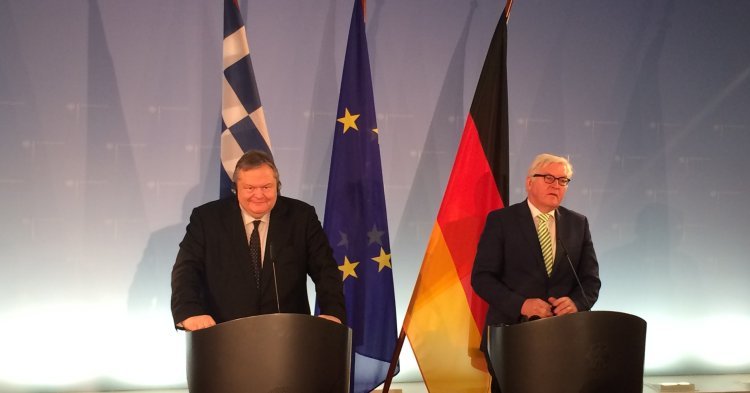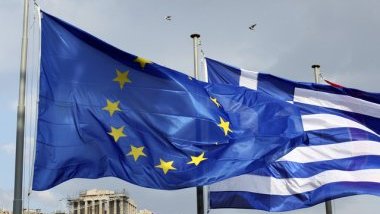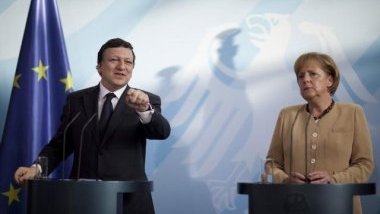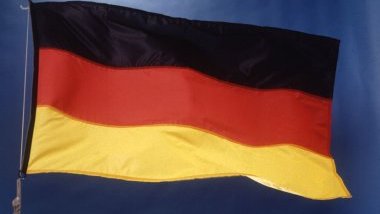As a young European-Greek who has been living in both Greece and Germany since 2010, I have drawn some conclusions about Greek-German relations. First, I hear from both sides that people are not against the Germans or Greeks, but simply oppose the politics being exercised. Second, there is a lack of sufficient communication not only at a political level, but also a societal one. Third, no sufficient measures are being taken to bridge this gap.
Media(tors) of Confusion?
During the early stages of the crisis, the media contributed a great deal to growing populism and the spread of stereotypes, false information, and misinterpretations—the Greeks are lazy, untrustworthy and greedy. Particularly the creative campaigns of the German newspaper Bild continue to be one-of-a-kind. Of course not everybody—and thankfully no one I know—reads Bild, but it is still the newspaper with the largest circulation in Europe and is capable of influencing the general public opinion. However, the yellow press is not the only actor to blame. Even serious media outlets and renowned journalists have “fallen into the populism trap”, be it because of bad sources, negligence, or for the sake of selling more papers.
On the other side, the Greek media are guilty as well. Portraying Chancellor Merkel as SS soldier and the Germans as Nazis is pathetic and unacceptable, to say the least. The high concentration of private media in the hands of a few business people influences the quality of news and prevents its objectivity. Some major media outlets belong to businessmen who also have ties with political parties, promoting as such their interests and sweeping stories that might pose problems under the rug. It’s a dangerous triangle of politicians, media, and business—especially problematic as public broadcasting and its lackluster programing fails to attract viewers with a viable alternative.
Short video snippets are meant to give us an impression about which politicians are better than others, and the broader picture gets drowned out. We criticize policy makers based on short statements or sometimes translation mistakes. Such interpreter mistakes (e.g. at press conferences) can cause “statement wars” throughout the media and social networks, which then lead to the intensification and polarization of public opinion. The same information is reproduced by many different media outlets, which makes critical or alternative voices hard to hear.
One may suppose that by now, an average Greek or German would possess in-depth knowledge about what has happened during the last years. This is simply not true. Even after so many years of being bombarded with messages about debts, haircuts, reforms, and the troika, the picture remains blurry. Just one thing is clear: people need honest and clear-cut answers. They need to know the truth and which alternatives exist. This sounds simple but in practice, it is so difficult to achieve.
Make It, Don’t Break It
How might relations between these two countries be reconciled? Remember that after WWII, Germany managed to achieve excellent ties, even friendship, with Poland and France. This came about through economic agreements but also through transnational social cooperation; visits between politicians and student/professional exchanges have strengthened relations to an extent that would have been unimaginable a few decades ago.
What similar programmes exist for Greek-German relations? There are some initiatives, organized primarily by and for Greek immigrants living in Germany. Further programs need to be set up for a broader base of participants. Above all, the establishment of a Greek-German Youth Forum—which was agreed to in November 2014—has to be realised soon. Exchange programmes, common activities, and projects with students or young experts is a guaranteed way to lay the foundations for smoother relations in the years to come.
Apart from this, educational and cultural centres like the Goethe Institute or local schools could serve as a communication bridge between the two countries. History lectures, for example, can help us understand our past, learn from it, and build upon it for a future based on democracy and peace. Making a special reference to history is not accidental. It is critical to dealing properly with our common European histories. There are traumas that were still must be healed after the war. I am not talking about reparations, but of moral compensation to the victims and their families. Exchange initiatives and cooperation among civil society is essential to healing those wounds.
The Missing Element
Everyday people currently aren’t involved enough in the debate on German-Greek relations. The discussion is always about what institutions say, what further reforms are needed, how the negotiations are proceeding, and what the outcome is after every summit. Citizens just stand by, listening to the developments without much engagement or ability to involve themselves in this process.
The narrative formulated throughout the crisis has contributed to reviving the very stereotypes, divisions, populism, and prejudices which Europe has worked to overcome since the end of WWII and the inception of the EU. We need to open up dialogue with all societal actors. It is our civic responsibility engage in the broader political debate.
We need to look at things from a wider European perspective. National lenses belong in the past.





1. On 12 June 2015 at 17:58, by duodecim stellae Replying to: We Need to Talk
Replying to: We Need to Talk
Very good article! Thumbs up from german Europe! You have some good ideas. Keep following your goals!
Follow the comments: |
|
